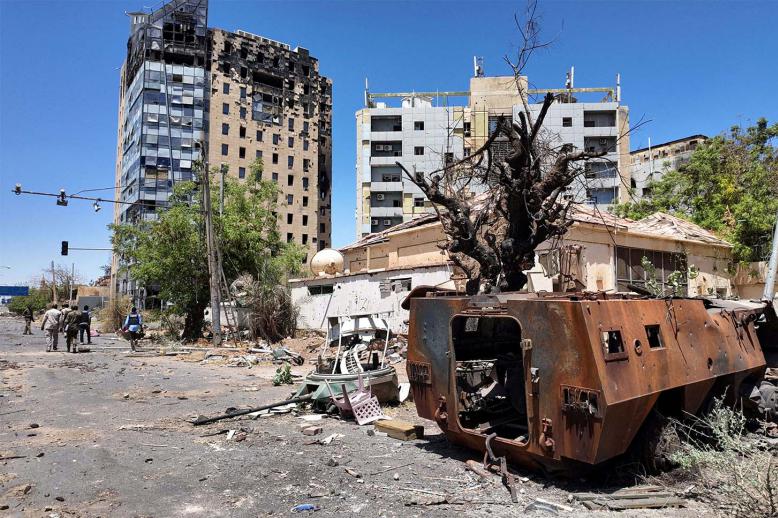Syria’s nightmare is far from over
Nine years of a devastating civil war have taken Syria decades backward. Regretfully, there is still no hope on the horizon. Rather, the region is bracing for one of the worst humanitarian crises yet.
Encouraged by recent military successes, Syrian government troops are supported by Iran’s Islamic Revolutionary Guard Corps, the Lebanese Hezbollah and Russian ground and air units, courtesy of a new friendship between Moscow and Damascus.
Together they have defeated -- although not completely -- opposition groups ranging from extremist Islamists from al-Qaeda and the Islamic State to groups composed of regular people, among them Syrian patriots struggling to bring a somewhat acceptable version of democracy to the war-torn country.
Encouraged by their successes in the fight with the opposition, some supported by the United States and Western Europe, the Syrian government launched another major offensive that human rights observers and refugee relief agencies said would create the largest refugee crisis of the war.
Approximately 1 million people are expected to become refugees because of the latest offensive. They will join 6 million or 7 million other people displaced by fighting in the past nine years.
While coping with such a large movement of population and the logistics that accompany such a migration, there is an immediate component to consider, which, alas, leaders involved in the execution of such atrocities rarely consider: the devastation and the destabilisation of the millions of lives they affect.
Soviet dictator Joseph Stalin was so right when he stated, “a single death is a tragedy, whereas a million deaths is a statistic.”
Among issues to consider are having to deal with the immediate crisis, the logistics of funnelling large numbers of civilians through a war zone. There are the problems associated with having to house and feed the refugees and having to provide medical assistance to the casualties of war. There is providing security for refugees from armed fighters looking for foes or deserters.
Another immediate problem goes well beyond the flow of Syrian refugees and concerns the security of Europe. Naturally out of the million refugees streaming north towards Turkey, several hundred thousands are likely to try to find their way to Western Europe.
Hoping to use the refugee crisis to his political advantage, Turkish President Recep Tayyip Erdogan allowed thousands of refugees passage through Turkish territory to the border with Greece and thus the European Union.
Thousands of refugees surged into Turkey’s north-western border region and battles erupted between the refugees and Greek police, who used tear gas, water cannons and rubber bullets to disperse the crowds. In villages near the border, townspeople took it upon themselves to prevent the refugees from settling in their towns.
The Greek Navy fired warning shots at refugees trying to reach Europe by sea aboard small rubber dinghies. In Athens, the Greek prime minister said the agreement the European Union had with Turkey concerning refugees seeking to cross Turkish territory was no longer valid.
The strain the refugees place on host countries is huge. The presence of such large numbers of foreigners vying to gain access to various European countries has divided the Europeans.
There are those who say the refugees need to be allowed entry on humanitarian grounds and those -- particularly on the political right -- who are strongly opposed to having more refugees enter their country. They often blame the immigrants for a suspected increase in street crime, although detailed studies have demonstrated that immigrants are far less likely to commit crimes than non-immigrants.
In some instances, there have been clashes between far-right groups and security forces.
Another consideration is the long-term damage that will affect Syria for the next three or four generations. The loss of the well-educated class and the artistic and cultural circles will leave a mark on the country.
After nine years of intense fighting, the Syrian people deserve a break from the harsh dictatorship they are subjected to. Shame falls first and foremost on the leader of that country who values his staying in power far more than the millions who have seen their homes destroyed, their friends and families killed and maimed, arrested and executed, all for the satisfaction of one man.
Shame and fault must also rest on the shoulders and conscience of the international community, particularly countries that have the clout and the power to intervene -- the United States, Great Britain and France.
The Syrian people deserve better than this.
Claude Salhani is a regular columnist for The Arab Weekly, where this article was originally published.







